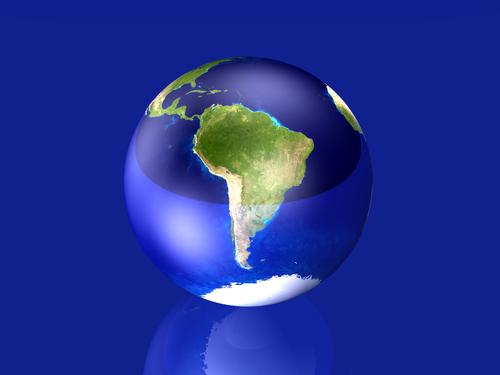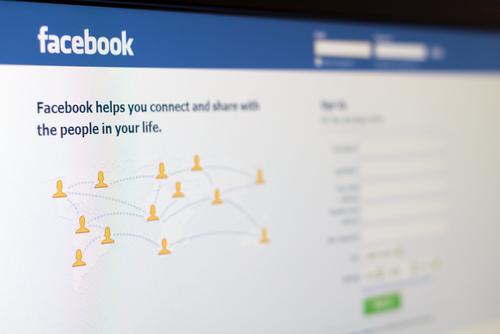Orion Jones
Managing Editor
Get smarter, faster, for success in the knowledge economy. Like us on https://t.co/6ZFWKpoKLi or visit https://t.co/d7r7dG2XOq
How do you find the right mix of employees so that your company will find innovative solutions to complex problems? Here is a how-to guide to find the right personalities for your business.
An investment firm that generously funds startups in their early stages is creating a powerful network of resourceful and experienced businesspeople. Could it replace corporations?
Is there tension between the conservative nature of higher education and the free-wheeling world of creating new businesses? Does success in one area come at the expense of the other?
Have a business? Want to find more customers? Pitching your business on Facebook can be awkward so here are some ways to get your idea out without pestering potential clients.
Later this year, Google will begin selling eyeglasses that work like transparent computer monitors, displaying all the information accessible on your smartphone.
3-D printers will revolutionize manufacturing and cloud-based computing power will solve complex problems. Combined, these technologies will create a future of abundance.
Stanford medical scientists have created a small wireless computer chip powered by magnetic currents that can navigate the body’s veins while monitoring health and releasing drugs.
Researchers have isolated a single phosphorus atom and placed it atop a silicon crystal with more precision than ever before. We are one step closer to achieving a quantum computer.
The European physics lab OPERA, which claimed to have tracked neutrinos traveling faster than the speed of light, has recanted. It says a bad GPS connection produced erroneous results.
When popular culture appropriates complex scientific theories, such as quantum mechanics, Joe Schmoe opines all over the Internet. Is it worth bringing science to the mainstream?
Why is there something rather than nothing? For starters, why do we think nothing is a more natural state than something? Physicists are answering old questions in brand new ways.
The space telescope has worsened NASA’s relationships with Congress, who felt duped by the exploding cost of the project. Still, the telescope may prove an amazing technical achievement.
The Hubble Space Telescope has confirmed that a distant planet discovered in 2009 is largely composed of water. Its physical attributes could mean an exotic mix of elements are present.
The winds of stellar-mass black hole have been clocked at 20 million miles per hour. Curiously, scientists say the winds carry away as much matter as the black hole draws in.
Facebook profiles assessed by a three-judge panel accurately reflected employee evaluations from each of the users’ employers. Should Facebook be used as a job-screening tool?
The multinational corporation Cisco Systems estimates that mobile-connected devices will outnumber humans by 2012. By 2016, mobile connection speed will increase ninefold.
Since the Justice Department’s actions against Megaupload, copyrighters have begun winning major victories over online file-sharing programs. The Pirate Bay remains defiant.
Start ups that encourage people to share their personal vehicles are becoming increasingly popular. Each offers their own system to entice you to make money from lending out your car.
Online data security continues to prove insufficient, whether it is Facebook hanging on to old photos or Path uploading users’ address books to their servers. Can insurance redress the damage?
Income inequality in the US is at the highest level in our history. How are private interest groups able to control the conversation and when will consumer-advocates show up to the fight?
“Scientifically literate government leaders who push for evidence-based policies and demonstrate a scientific outlook are needed more than glib panderers with attitude.”
Internships and mid-career opportunities are increasingly present in Latin-America as the region’s economic growth has proven stable throughout the global recession.
The constant tug-of-war between governmental bodies over environmental policy, and industry’s endless stream of legal challenges, create substantial economic waste.
Despite the homogenizing effect of globalization, many large cities retain their unique character. Indeed, cities can enact meaningful change when national governments will not.
A new study says that children acquire a sense of fairness before they reach the age of two. An equal distribution of resources according to effort is innate and universal, say researchers.
New research published in a scientific journal which measures the psychological and behavioral effects of social media suggests that Facebook makes us happier and more creative individuals.
Neuroscientists have used quantum dots—light-sensitive, semiconducting particles just a few nanometers in diameter—to stimulate neurons which have been damaged by disease or age.
Scientists at UCLA have found that running a mild electric current through the brain’s hippocampus improves memory function. The finding could contribute to Alzheimer’s research.
The insistence of parents, teachers and physicians that children be concentrated fully and absolutely on their school work is a corruption of values, says playwright Hanif Kureishi.
The way we diagnose depression is changing, in the laboratory and the clinic. New blood tests measure depression’s biomarkers while new diagnostic guidelines say grief is the same as depression.





























